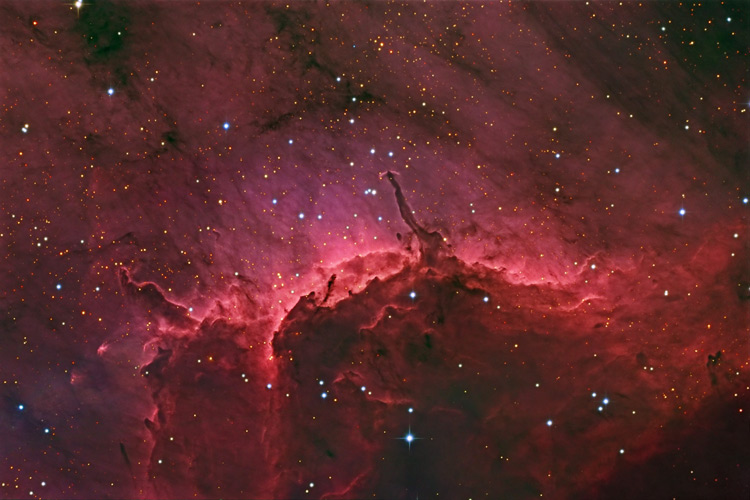
Clic here for 60% size 2400 x 1600 (690 kB)
About this Image |
|
|
This crop on the central part of the Pelican Nebula (IC 5070) is showing the bright and complex shock front featuring a similar shape as the famous Cygnus Wall in the larger North America Nebula.
Highly energised shock fronts give a high contrast to the adjacent areas, filled with complex dark gas and dust lanes.
|
|
|
| Optics |
410mm cassegrain in secondary focus at f/10 |
| Mount | MK-100 GEM |
| Camera | SBIG STL-11000M at -19C, internal filter wheel |
| Filters | Baader LRGB + H-alpha (7 nm) |
| Date | July 27-28, 2009. |
| Location | Wildon/Austria |
| Sky Conditions | mag 5.5 sky, raw FWHM 1.5-1.8", temperature 15 C, |
| Exposure | Ha:L:R:G:B = 150:120:60:60:60 minutes (20 min subs for LRGB, 30 min subs for Ha), all 1x1. |
| Programs used |
Maxim DL 4.5;
CCDStack Fitsliberator Photoshop CS3 |